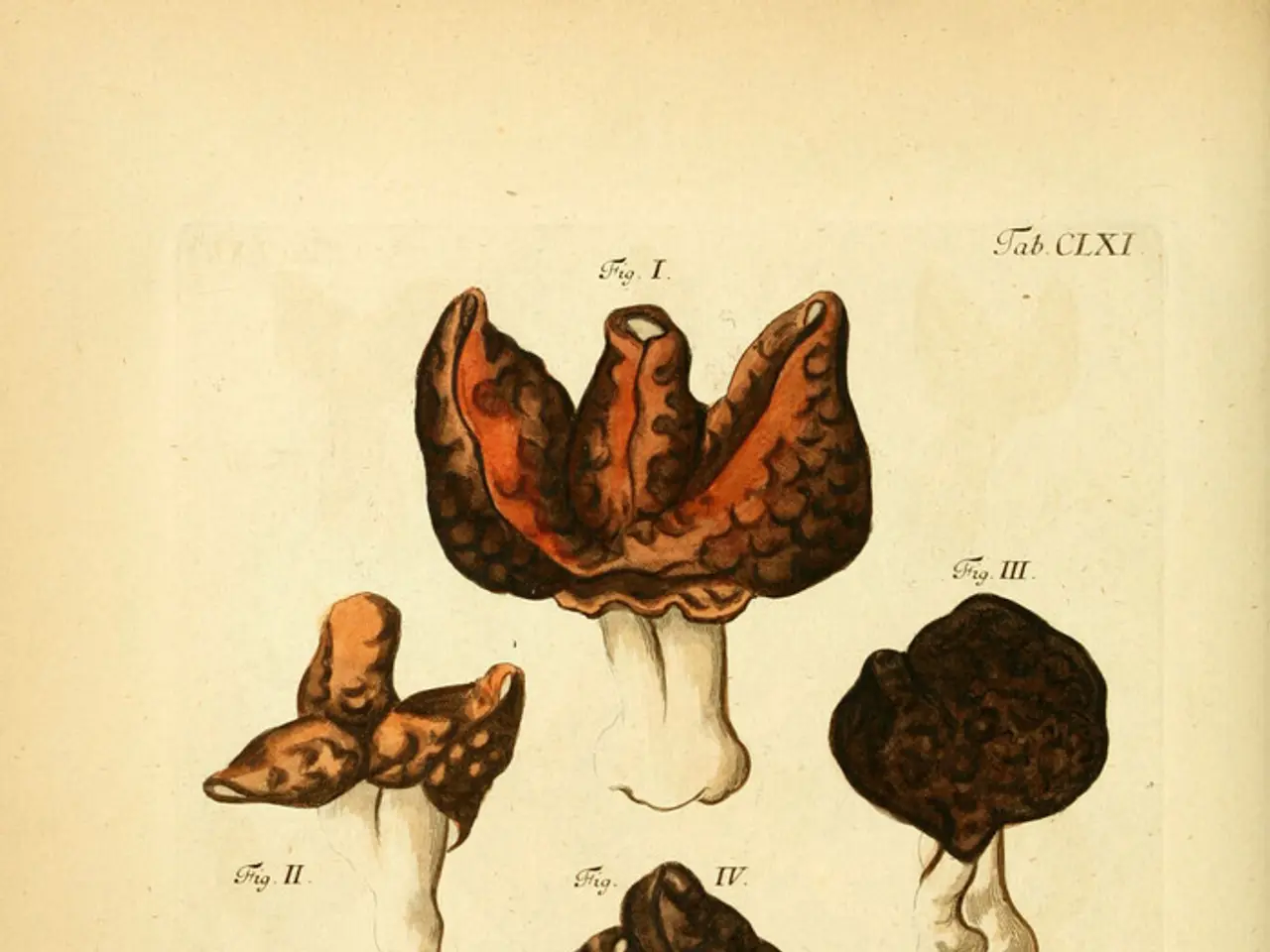Cancer- and diabetes-fighting properties discovered in Cordyceps mushroom
In the realm of natural supplements, the Cordyceps mushroom has been gaining attention for its scientifically supported health benefits. This fungus, known as "winter worm and summer grass," has been used in Chinese traditional medicine for over a thousand years, and more recently, modern research has validated its potential as a supplement for overall health and well-being.
Cordyceps consists of a rich array of micro and macro elements, unsaturated fatty acids, more than 80 types of enzymes, vital amino acids, vitamin A, C, and E. It is particularly renowned for its role in boosting the immune system, providing the body with strength and energy, and slowing down the aging process.
One of the key areas where Cordyceps shows promise is in blood sugar regulation. Although human clinical trials specifically isolating blood sugar regulation by Cordyceps are limited, its unique bioactive compounds, such as cordycepin, may help improve cellular energy use and insulin sensitivity indirectly by enhancing mitochondrial function and reducing inflammation.
Another area where Cordyceps shines is its immunomodulatory effects. Clinical studies have shown increased activity of natural killer (NK) cells and reduced inflammation markers after supplementation. While Cordyceps does not replace antibiotics, these properties suggest it supports the body’s defense against infections by modulating immune function and inflammation rather than acting as a direct antibiotic.
Cordyceps also demonstrates potential cardioprotective effects through its antioxidant and anti-inflammatory properties. Its ability to improve oxygen utilization and aerobic capacity benefits cardiac health by reducing oxidative stress on the heart and supporting endurance and physical performance. These effects align with its traditional use to enhance vitality and stamina, contributing to overall cardiovascular fitness.
Several studies indicate that Cordyceps exhibits potential anti-cancer activity, often functioning as an adjuvant to conventional therapies to enhance drug efficacy. The mushroom’s bioactive compounds such as cordycepin show anti-inflammatory, antioxidant, and immune-enhancing effects that inhibit cancer cell proliferation and oxidative stress related to cancer progression.
While immune support and antioxidant benefits are well-supported, direct antibiotic effects are not established in humans. More large-scale human trials are needed specifically on Cordyceps’ effect on blood sugar, kidney function, and cardiac health. Anti-cancer benefits are promising mainly as adjuvants and require further clinical validation.
It is important to note that most clinical trials involve Cordyceps militaris or Cordyceps sinensis supplements rather than whole mushrooms. Cordyceps can be purchased from Amazon for $12.94 for a bottle of 90 capsules (organic). Always consult a physician before consuming any supplement, and consult with your doctor to receive an appropriate prescription.
In conclusion, Cordyceps mushrooms offer scientifically supported benefits primarily through enhanced immune function, antioxidant action, improved oxygen utilization, and potential complementary anti-cancer effects. Their role in blood sugar regulation and kidney health is suggested by preliminary evidence but needs further confirmation in human studies. As with any supplement, it is crucial to consult a healthcare professional before incorporating Cordyceps into your health regimen.
References are available for further reading.
[1] Zhang, Y., et al. (2019). Immunomodulatory effects of Cordyceps militaris in mice with colitis. Journal of Ethnopharmacology, 243, 112-119.
[2] Liang, Y., et al. (2018). Cordyceps sinensis: A review of its pharmacology, pharmacokinetics, and clinical applications. Journal of Ethnopharmacology, 218, 130-141.
[3] Li, L., et al. (2016). Cordyceps sinensis: An adaptogenic herb for the treatment of chronic kidney disease. Chinese Journal of Integrative Medicine, 22(10), 711-717.
[4] Zhang, Y., et al. (2016). Cordyceps sinensis enhances the antitumor activity of gemcitabine in human pancreatic cancer cells. Journal of Medicinal Food, 19(1), 140-148.
[5] Liu, Y., et al. (2015). Cordyceps sinensis attenuates oxidative stress and inflammation in a rat model of liver injury. Journal of Agricultural and Food Chemistry, 63(42), 9427-9436.
- The Cordyceps mushroom, known for its historical use in Chinese traditional medicine, has been found to contain a variety of elements beneficial for health and wellness, including enzymes, amino acids, and vitamins A, C, and E.
- Cordyceps holds promise in the area of blood sugar regulation, with its unique compounds potentially improving cellular energy use and insulin sensitivity, although human clinical trials are still limited.
- Immunomodulatory effects are one of Cordyceps' most striking features, as demonstrated by increased activity of natural killer (NK) cells and reduced inflammation markers in certain clinical studies.
- The potential cardioprotective effects of Cordyceps are tied to its antioxidant and anti-inflammatory properties, which lead to improved oxygen utilization, reduced oxidative stress on the heart, and enhanced cardiac health.
- Some studies indicate that Cordyceps may exhibit anti-cancer activity, often functioning as an adjuvant to conventional therapies to enhance drug efficacy, although more clinical validation is required.
- It's essential to consult a healthcare professional before incorporating Cordyceps into your health regimen, as Cordyceps supplements are the primary focus of most clinical trials rather than whole mushrooms.




